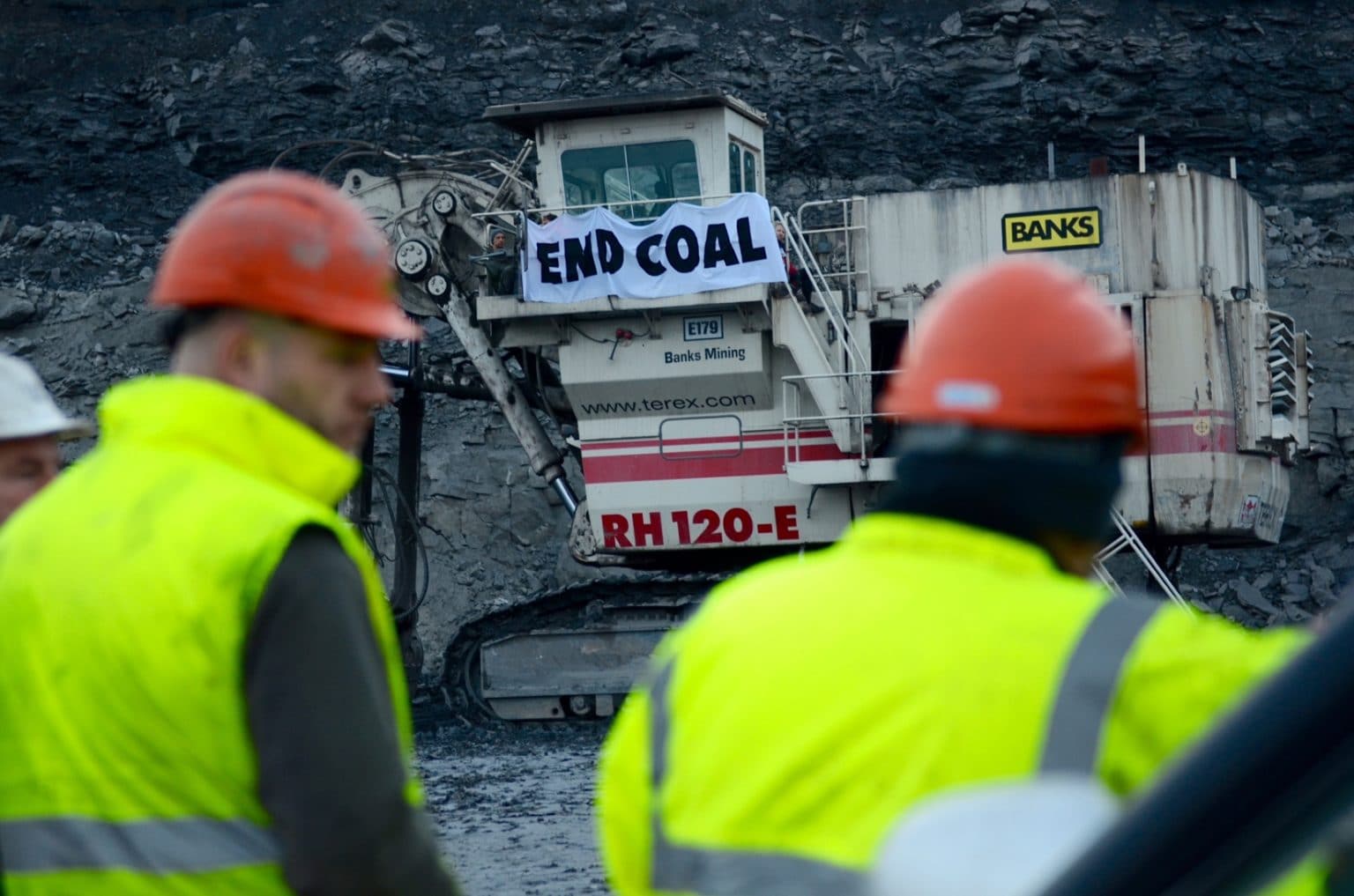It’s been quite a year. From the UK general election and unexpected green policy cuts, to the Paris climate conference and unprecedented average global temperatures.
We’ll forgive you if you haven’t been able to keep up with everything that’s happened.
So before you ring in the New Year why not catch up on some of our biggest hits. These are DeSmog UK’s top five stories from 2015.
1. The Paris Climate Conference
December saw the world agree an unprecedented global climate deal – the Paris Agreement – after decades of UN climate summits. Does the deal contain everything everyone wants? No. Will people still suffer from climate-related catastrophes? Yes. But at least it’s a step in the right direction.
DeSmog UK reported from inside the climate talks for the whole two weeks. From David Cameron’s opening speech (after quite a long silence on climate change) to Saudi Arabia trying to block the mention of a 1.5C target in the Paris text, we were there.
Other key issues that we covered during Paris include:
Paris Climate Talks to Fossil Fuel Investors: ‘Get Out Now’
Amber Rudd Joins High Ambition Coalition as 1.5C Target Survives Another Day
Why is Loss and Damage a Big Deal at the Paris Climate Talks?
2. Matt Ridley’s Coal Saga
Where do I even begin on this one?
The year started out with us investigating how much climate ‘lukewarmist’ Matt Ridley makes from the coal mines on his land – a key question to ask, especially when he claimed he could make more money from renewables.
We also found out how much Banks Mining – the company extracting the coal – is making. And we revealed that Ridley is the number-one source in a report by the coal giant Peabody Energy that was submitted to the White House this year claiming greenhouse gas emissions are a “non-existent harm”.
Then, in October Ridley’s mine was shut down for a day as protesters gathered at the entrance and chained themselves to diggers inside the mine.
It seems Ridley barely had time to recover from that when in December he was caught up in a ‘dollars-for-denial’ scandal that is currently engulfing the Global Warming Policy Foundation (GWPF) – of which he is a member and for which he has written reports (the most recent one acknowledging that he does in fact earn a profit from coal).
You can read our whole series here.
3. Koch Industries’ EU Lobbying
In July, DeSmog UK broke the story that, between 2012 and 2015, Koch Industries had spent up to €0.5 million on their European lobby efforts. Owned by Charles and David Koch, Koch Industries is known for funding climate denial groups.
This was quickly picked up by both the Guardian and U.S. green blog Grist as well as the Politico energy bulletin.
You can read the entire series here.
4. The Heartland Institute’s Climate Denial
From the Pope to Paris, the Heartland Institute’s troop of climate deniers has been busy this year. And we were there to capture the chaos.
In April, the climate deniers travelled to Rome to try and convince the Pope not to talk about climate change. Needless to say it didn’t work. (Perhaps the lack of audience in the room was a factor.)
Then in June they held their annual climate conference. However, DeSmog UK’s accredited journalists were not allowed to attend. This is despite the Heartland Institute’s strong belief in the freedom of speech.
Finally, in December they came to Paris where they held, once again, a very sparsely attended press conference. But apparently it wasn’t open to all media as DeSmog UK journalists – who had registered media passes into the UN climate summit – were told it was a “private event” and were asked to leave.
Later in the evening they held a very bizarre film premier for Marc Morano’s Climate Hustle. You can read all about the surreal scene here.
5. The Greenest Government Ever?
It has definitely been a whirlwind trying to cover this government’s continued attack on anything resembling a green energy policy.
Yes the government wants a dash for gas. We all knew they were pro-fracking. But what few saw coming was the drastic cuts to solar and wind subsidies, as well as zero carbon homes, efficiency schemes and carbon capture and storage – just to name a few.
Then in October during the Conservative Party Conference, climate change got barely a whisper in Energy and Climate Secretary Amber Rudd’s speech. Meanwhile Energy Minister Andrea Leadsom told an audience that renewables are for the future, but we need more fossil fuels now.
This has led to many asking whether Chancellor George Osborne is really running the show. (See this DeSmog UK article on his meetings with oil and gas companies for more details.)
Many including Angus MacNeil, chair of the Energy and Climate Change Committee, and Greg Barker, former Tory energy secretary, have also heavily criticised the government’s actions. It all seemed to come to a peak when Rudd admitted that the UK is unlikely to meet its legally binding 2020 renewable energy targets just weeks before the Paris climate summit.
We can only wait and see what happens in 2016…
Bonus: In December a Greenpeace investigation revealed that some of the world’s most vocal climate science denial groups were willing to accept cash from fossil fuel interests in return for writing articles and reports that reject the impacts of greenhouses gases. One of these was Lord Lawson’s GWPF. DeSmog UK then revealed that the Charity Commission has confirmed there is an open inquiry going on into the GWPF.
So, as we head into 2016, if you haven’t already, do take a minute to follow us on Twitter and Facebook, and sign up for our newsletter, so that you can stay up to speed on all of DeSmog UK’s activities.
Subscribe to our newsletter
Stay up to date with DeSmog news and alerts






